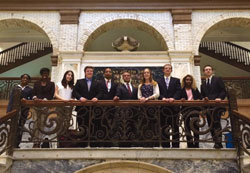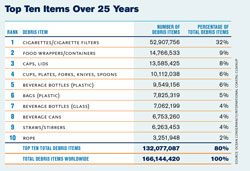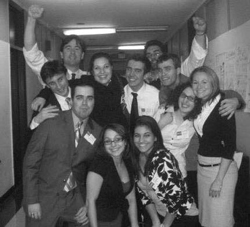Protest leaders continue to demonstrate in Hong Kong Central, which began in Sept., according to BBC.com. Thousands of protestors flood the streets in opposition to the Chinese government’s influence on elections.
According to Dr. Peter Liu, professor of criminal justice, the protestors in Hong Kong are demonstrating against regulations that were made by the mainland Chinese government in Beijing regarding Hong Kong’s 2017 standing committee election. The protestors are mainly comprised of college students that are calling for direct democracy.
Although Hong Kong is part of China, it differs from the mainland government. Liu said that the difference between mainland China and Hong Kong goes back to a war fought in 1840 between the Chinese and Great Britain. Great Britain ultimately won this war, forcing China to give up Hong Kong.
In 1897, another war was fought over the land and China lost once more. Hong Kong remained a British colony until 1997, when they decided to give land back to China under the condition that they would let Hong Kong keep their own laws and capitalist system of government, to which China agreed.
Since 1997, Hong Kong has kept its political system independent of China. Liu called it “one country, two systems.”
He explained, “China has a one party Communist system while Hong Kong has a capitalist system.” However, the mainland Chinese government inserted candidates that are pro-Beijing (Communist) into the standing committee. The leaders of Hong Kong’s government are elected by the officials that are on this committee, who were voted in by the citizens of Hong Kong. The presence of pro-Beijing Communists creates a mainland Chinese influence on Hong Kong.
Anthony Jamison, adjunct professor of criminal justice, said that this is like China saying to Hong Kong, “We are letting you have a democracy, but you have to vote for these candidates.”
Liu said, “The problem is that China doesn’t like the Hong Kong movement.” He explained that the Chinese do not have sympathy because in their view, Hong Kong has already been afforded the gift of having their own government.
Liu also said that the Chinese government worries that Hong Kong “could branch out.”
In Jamison’s opinion, the Chinese government “worries about anything that threatens their control.”
Another reason the mainland Chinese do not like the movement is because they have a single party system that attempts to unify the country.
Jamison shared some of his experiences when he visited Beijing for the 2008 Olympics. He said, “When I was there, the media made up a story that George Bush made threatening comments towards China.” He also said that he tried to look up a news story from an American news outlet on his phone and when he got on the website, his phone immediately died.
One more example that Jamison provided was when he was on a tour that passed through Tiananmen Square, which is the site where pro-democracy protestors were massacred by the Chinese People’s Liberation Army (PLA). He said someone asked about the incident and, “the tour guide got very agitated and claimed that the incident never happened.”
Jamison continued, “[The Chinese Government] wants the Hong Kong police to take care of the protestors because they are worried about world opinion.” Jamison said that their revision to the election was probably an attempt to “gradually make Hong Kong more like mainland China over time.” He added, “the gradual approach will be more accepted by the international community.”
The protest has sparked some interest around the world, and there are a couple of problems with it.
First, not all of Hong Kong is supporting the protests. Liu said, “I feel Hong Kong is divided.” He explained that the reason why not all of Hong Kong is behind the protest is because it is hurting their economy.
The protests are occurring in Central Hong Kong, which is “equivalent to our Wall Street,” according to Liu. He explained that the people of Hong Kong are very “money oriented.” He even said that their capitalist system is arguably more capitalist than New York City, so the effect on the economy is definitely a huge problem.
Liu also said, “The protestors are mostly students and there is no real political force behind the protest.”
Miguel Nunez, a senior political science major, said, “Until the Chinese government stops trying to make voting decisions without having the responsibility to consort with the electoral college [the protests] will continue to happen.”
Nunez, however, questions the influence of the protests. “Will the protests and the thoughts of pro-democracy spread to mainland China, and could that impact the rest of country if not the world?”
For now, he concluded, “The argument could go either way.”
IMAGE TAKEN from Sinoway.com




